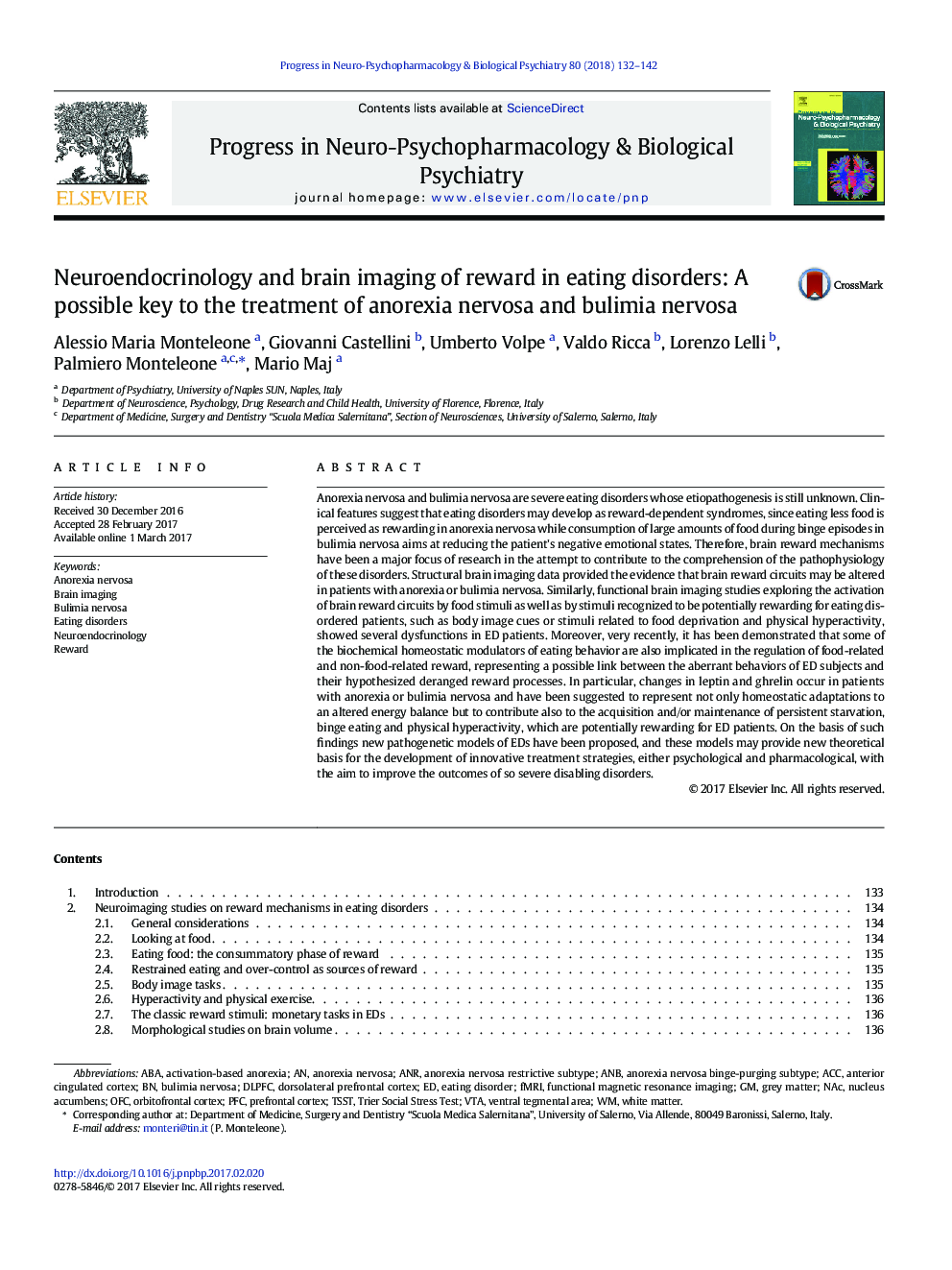| کد مقاله | کد نشریه | سال انتشار | مقاله انگلیسی | نسخه تمام متن |
|---|---|---|---|---|
| 5557900 | 1561015 | 2018 | 11 صفحه PDF | دانلود رایگان |
- Eating disorders (EDs) have been proposed to develop as reward-dependent syndromes.
- Brain imaging studies demonstrated structural and functional alterations of brain reward circuits in ED patients.
- Neuroendocrine modulators of eating behavior are implicated also in reward regulation.
- Changes in leptin and ghrelin occurring in the acute phase of an ED may sustain aberrant rewarding behaviors.
- This conceptualization may provide new theoretical basis for the development of innovative treatments of EDs.
Anorexia nervosa and bulimia nervosa are severe eating disorders whose etiopathogenesis is still unknown. Clinical features suggest that eating disorders may develop as reward-dependent syndromes, since eating less food is perceived as rewarding in anorexia nervosa while consumption of large amounts of food during binge episodes in bulimia nervosa aims at reducing the patient's negative emotional states. Therefore, brain reward mechanisms have been a major focus of research in the attempt to contribute to the comprehension of the pathophysiology of these disorders. Structural brain imaging data provided the evidence that brain reward circuits may be altered in patients with anorexia or bulimia nervosa. Similarly, functional brain imaging studies exploring the activation of brain reward circuits by food stimuli as well as by stimuli recognized to be potentially rewarding for eating disordered patients, such as body image cues or stimuli related to food deprivation and physical hyperactivity, showed several dysfunctions in ED patients. Moreover, very recently, it has been demonstrated that some of the biochemical homeostatic modulators of eating behavior are also implicated in the regulation of food-related and non-food-related reward, representing a possible link between the aberrant behaviors of ED subjects and their hypothesized deranged reward processes. In particular, changes in leptin and ghrelin occur in patients with anorexia or bulimia nervosa and have been suggested to represent not only homeostatic adaptations to an altered energy balance but to contribute also to the acquisition and/or maintenance of persistent starvation, binge eating and physical hyperactivity, which are potentially rewarding for ED patients. On the basis of such findings new pathogenetic models of EDs have been proposed, and these models may provide new theoretical basis for the development of innovative treatment strategies, either psychological and pharmacological, with the aim to improve the outcomes of so severe disabling disorders.
Journal: Progress in Neuro-Psychopharmacology and Biological Psychiatry - Volume 80, Part B, 3 January 2018, Pages 132-142
